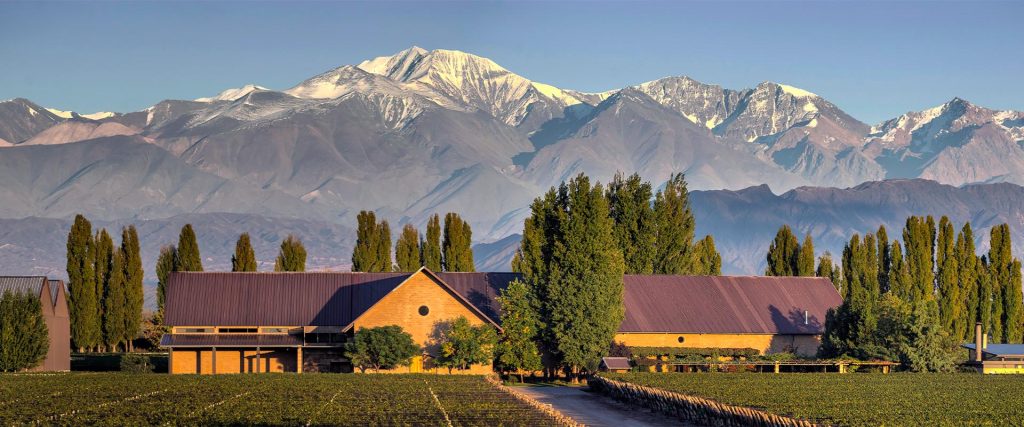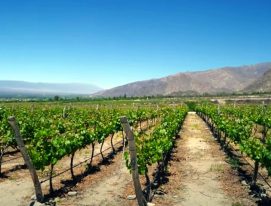Susana Balbo Wines stand out for the quality and originality of their wines, as well as the creative innovations seen in the different lines that make up their portfolio, which has always set trends for others to follow.
Founded in 1999 in the heart of Luján de Cuyo (Mendoza) by the first woman oenologist in Argentina, Susana Balbo, the winery that bears her name is undoubtedly an icon of the national wine scene.
A commitment to sustainability and protecting the environment, as well as their investment in promoting quality oenotourism through high end hospitality and cuisine have made the winery an industry leader.
Ana Lovaglio, the Head of Marketing and daughter of the famous winemaker, is now in charge of outlining the family business’s plans and anticipating responses to future challenges. She told us a little more about the operation.
Susana Balbo Wines: the revolution of whites and reds
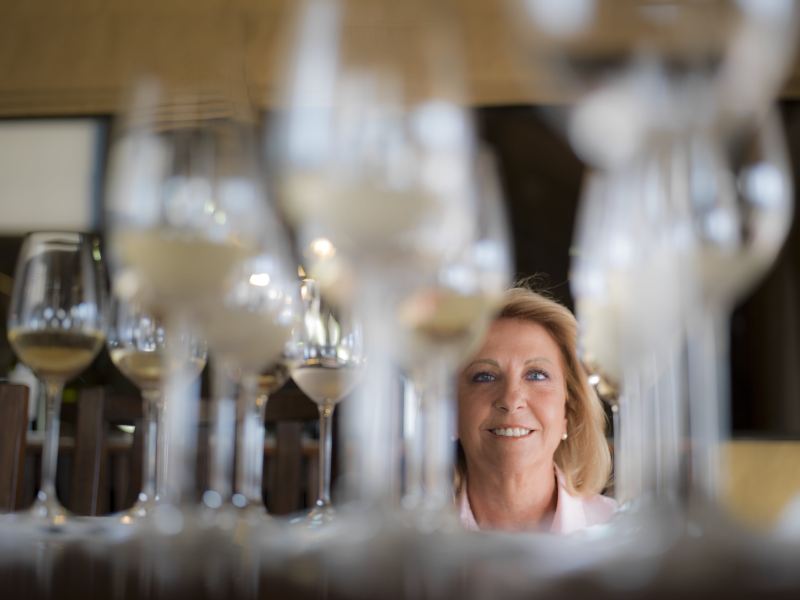
Susana Balbo is renowned across the world for her experience and expertise, as well as the contribution she has made to the development of Argentine wine. She is a three-time president of Wines of Argentina and works every day to promote Argentine wine across five continents.
Ana Lovaglio looks back over the different stages experienced by her mother during her time at the winery: “There are three clearly differentiated periods. The first, Argentina 1.0, saw the rise in popularity of Malbec across every market, which had never happened before. Then came version 2.0, which we might describe as terroir-differentiated Malbec and diversification. Now, at Susana Balbo we’re leading the 3.0 stage which I like to call the ‘Revolution of Whites and Rosés.’”
She explains: “In the US market, Argentina is associated with Malbec and not much else. At Susana Balbo Wines, between 30% and 40% of our wines are whites and rosés, compared to between 7% and 15% among most Argentine producers. We’re getting very high scores, the press is appreciating our work. We want to be white wine producers in a land of reds.”
Torrontés, at the forefront of innovation
The authentic Argentine grape, Torrontés can be difficult to handle: “You need real expertise and know how, it’s a constant challenge and that in itself is very interesting,” says Lovaglio.
The winery’s interest in Torrontés isn’t just based on Balbo’s experiences working in Salta (with the specific goal of making the grape the basis of elegant wines), but also more recent achievements:
“We took the genetic components of Torrontés from Cafayate and brought them to Altamira, with excellent results. The same was true of a high end Torrontés we fermented in barrels; a unique wine.”
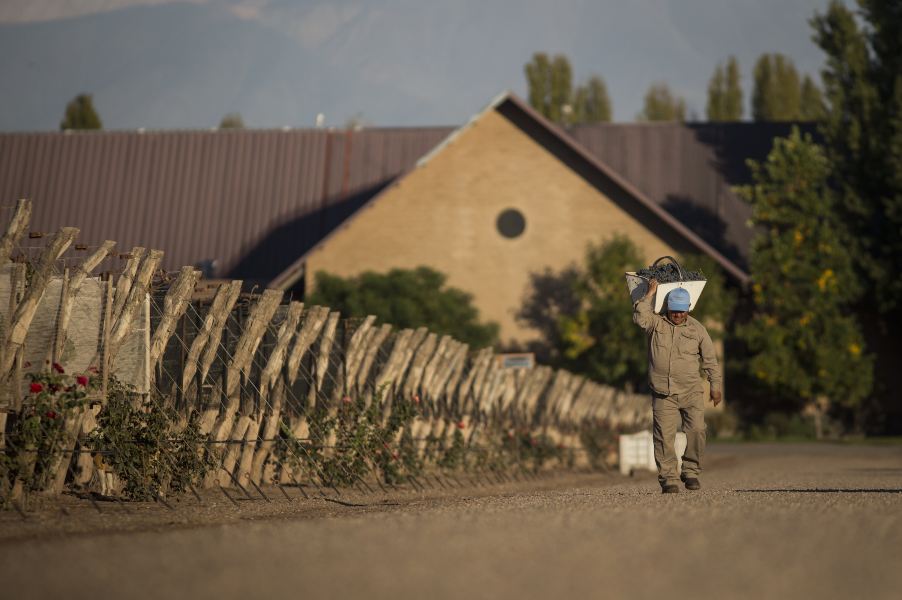
Regarding their rosés, Lovaglio says, “We were pioneers in launching an elegant Provençal style wine in a lovely perfume-style bottle. Shortly afterward several others looking to do something similar came on the market, people were asking us how we did it.”
And that’s not the end of the story, Ana’s always looking at the bigger picture, “I’m observing global trends, with people making whites as though they were reds and vice versa. In other words: ethereal, floral, elegant reds made without so much wood as well as complex whites made with skins that really reflect their terroirs.”
The Susana Balbo Wines portfolio
“Crios is a false entry level wine,” says Ana, describing them as honest, simple wines with plenty of varietal character. The Crios Sustentia line is made up of organic, low alcohol wines that express the winery’s sustainable outlook.
“The Crios philosophy is better for you, better for everyone. The low alcohol content is a result of decisions taken during the harvest. We got a white wine that was 8.5° or 9° instead of 13°.”
BenMarco is the winegrower’s line and takes an extreme approach. “These are low intervention wines given that the objective is to reflect the terroir as clearly as possible. They are made in the style of Edy Del Pópolo, the winegrower and general manager of the winery, and include a range of organic wines and others from specific parcels and vineyards.”
Susana Balbo Signature, meanwhile, are the oenologist’s wines: “Here, the terroir is combined with my mother’s knowhow. You need to be very expert to achieve a style like this: fermentation, maceration, barrel-aging and, for most of these wines, blending, all affect the overall outcome.”
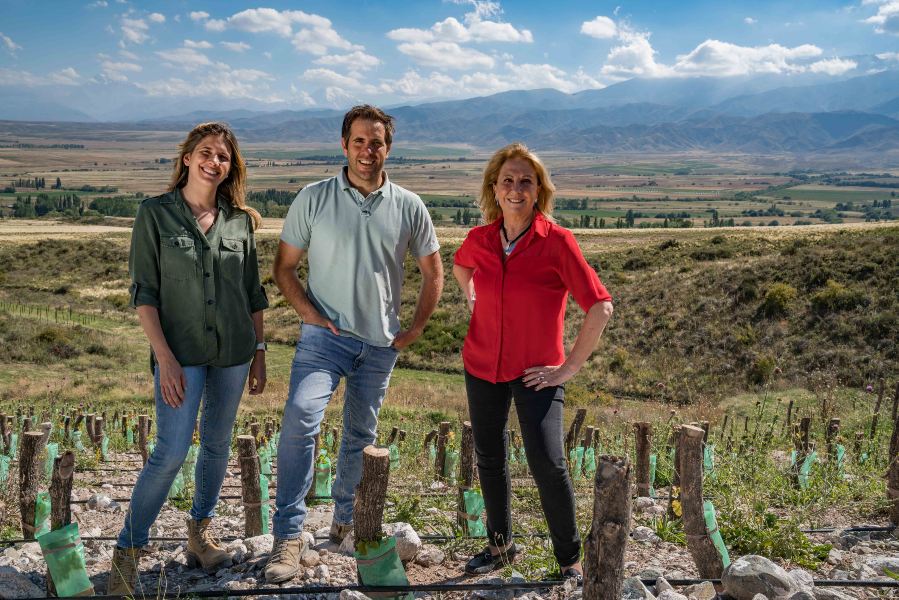
Nosotros is the “crème de la crème”, says Ana: “We adopted the concept of ‘Single Vineyard Nómade.’ We wanted the wine to be the best expression of the winery every year and so we do a blind tasting of the 5 chosen vineyards, using grapes from the best parcel of each. Each harvest, we change the vineyard, hence the name Nómade.
“All of our lines over deliver in terms of price. A bottle of Nosotros priced at 100 USD is often comparable to one priced at 200 USD.”
Innovation and excellence: the winery’s hallmarks
Lovaglio shares the five pillars that make up the philosophy at every department of the winery: “Courage, which reflects my mother’s resilience in her career, but also her tendency to wear her heart on her sleeve, to expose herself. Love and Commitment; sustainability and social responsibility are part of these. Innovation and Quality: that’s the 360 view, it encompasses our wine, cleanliness at the winery, how quickly we respond to queries, etc.”
High end cuisine and hospitality
Susana Balbo Wines also offer the opportunity to enjoy their wines with sophisticated cuisine. The restaurant Osadía de Crear offers different course menus with wine pairings and in the garden at Espacio Crios you can have picnics and family barbecues. There’s also a wide range of activities such as blending competitions and cookery classes.
Susana Balbo Winemaker´s House Spa Suites recently opened in Chacras de Coria, a boutique hotel offering unique quality service in Mendoza that is not run directly by the winery but bears the Susana Balbo brand.
Lovaglio, who also oversees the hotel, lists the benefits of the enterprise: “There’s plenty of synergy between the products, the winery operates during the day mostly and SBWH is focused on the night, with fine dining and very sophisticated gastronomic service. The hotel also offers wines from outside the Susana Balbo portfolio.”
Sustainability, a commitment in the present and the future
Since they began, Susana Balbo Wines have promoted sustainability in the Argentine wine industry. “The winery has signed up to the Bodegas de Argentina protocol, a tool with which to measure our impacts and help us to continuously improve. We recycle and sort our waste and use solar panels and LED lighting, among other initiatives. We do it out of conviction, I like to work with substance, not just jump on the bandwagon,” Ana says.
Currently, they are working with a consultant to address sustainability in a comprehensive manner with long term policies to ensure a triple impact: social, environmental and economic, and to ensure their success they have an ace up their sleeve; the active participation of a committed staff in every department.

